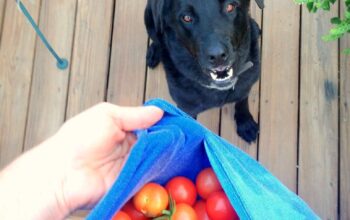Dogs are allowed apples, but only certain types.
Apples are a good source of nutrition for dogs, but they should be fed in moderation. Some health risks may be associated with feeding apples to dogs. These include the potential for choking, digestive problems, and potentially harmful chemicals.
The best type of apple for dogs is the Fuji apple. This variety is low in acidity and sweetness, making it easier for dogs to digest. Other good options include the Granny Smith and Honeycrisp apples.
Apples are a good source of fiber, vitamins A and C, and antioxidants. They can help promote healthy digestion and may even help boost a dog’s immune system. However, because apples contain sugar, dogs should only eat them in moderation.
Some health risks associated with feeding apples to dogs include the potential for choking, digestive problems, and potentially harmful chemicals. Apples should be fed in moderation to minimize these risks.
What types of apples are good for dogs and why
There are many types of apples that are good for dogs. Some of the most nutrient rich apples include the Braeburn, Honeycrisp, and Granny Smith apples. All of these apples are high in fiber, Vitamin C, and antioxidants. Feeding your dog an apple a day can help keep their immune system strong and may help protect them from cancer. However, it is important to make sure that your dog does not eat the seeds or the core of the apple, as these can be harmful to their digestive system.
While apples are generally safe for dogs to eat, there are a few potential health risks associated with feeding them to your furry friend. For example, if your dog eats the seeds of an apple, they could be at risk for developing intestinal blockages. Additionally, if your dog eats too many apples, they could develop diarrhea or vomiting. Therefore, it is important to only feed your dog small amounts of apple as part of a healthy diet.
The nutritional value of apples
Apples are a good source of dietary fiber, vitamin C, and antioxidants. They also contain a small amount of potassium, calcium, and magnesium. Dietary fiber may help to regulate digestion, vitamin C may help boost the immune system, and antioxidants may help protect against cancer. Additionally, apples are a good source of dietary pectin, which can help reduce cholesterol levels.
Health risks associated with feeding apples to dogs
While apples are generally safe for dogs to eat, there are a few potential health risks associated with feeding them to your furry friend. For example, if your dog eats the seeds of an apple, they could be at risk for developing intestinal blockages. Additionally, if your dog eats too many apples, they could develop diarrhea or vomiting. Therefore, it is important to only feed your dog small amounts of apple as part of a healthy diet.
Potential health risks associated with feeding apples to dogs
There are a few potential health risks associated with feeding apples to dogs. For example, if your dog eats the seeds of an apple, they could be at risk for developing intestinal blockages. Additionally, if your dog eats too many apples, they could develop diarrhea or vomiting. Therefore, it is important to only feed your dog small amounts of apple as part of a healthy diet.
Conclusion
Feeding your dog apples can be a healthy addition to their diet, as long as you feed them the right type of apple and only give them small amounts. Apples are a good source of dietary fiber, vitamin C, and antioxidants, which may help protect your dog from cancer and other diseases. However, there are a few potential health risks associated with feeding apples to dogs, so it is important to consult with your veterinarian before making them part of your furry friend’s diet.



